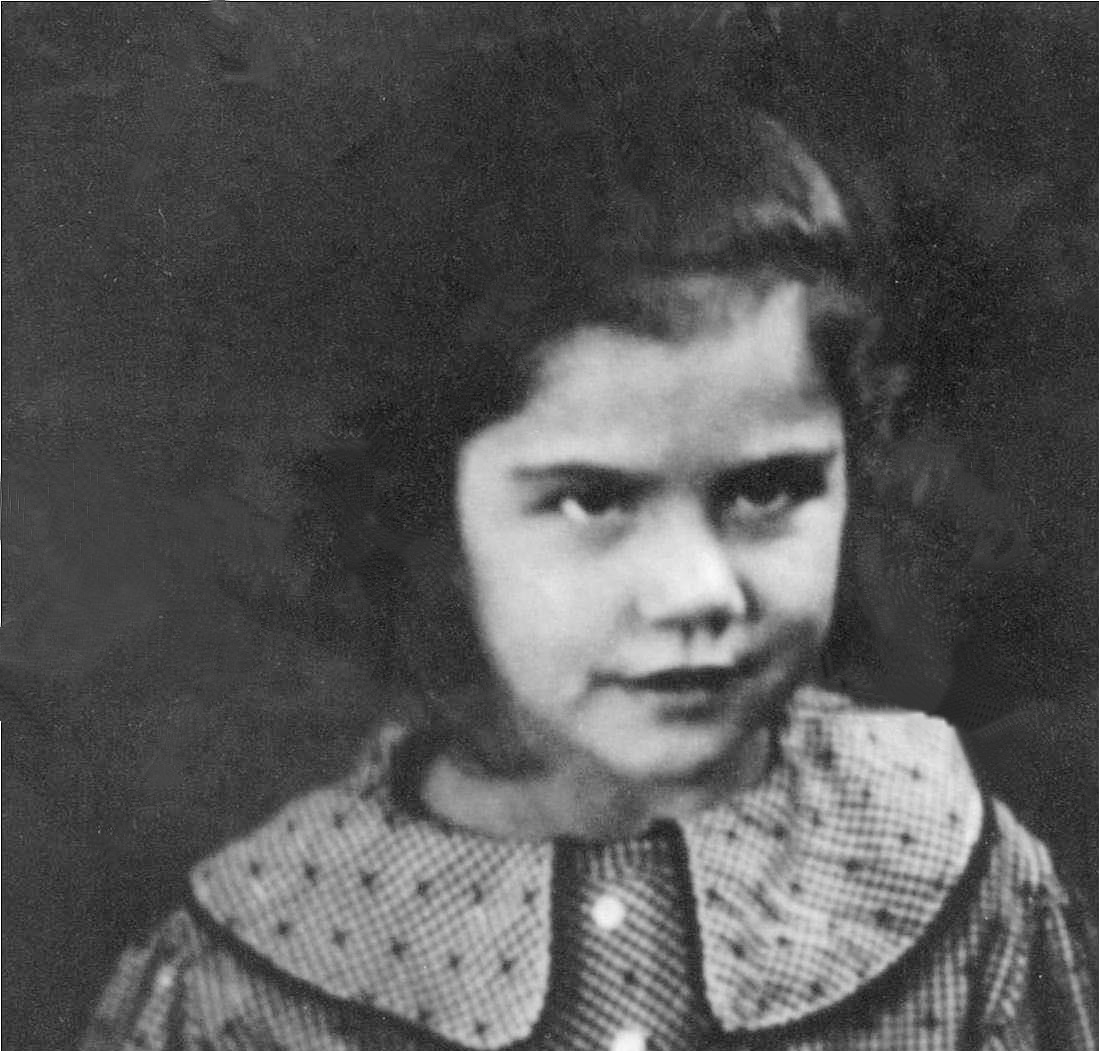
By Renee Wendinger
Early this week, Google notifications alerted my email to the West Side Rag’s article: The Orphan Houses of the Upper West Side. I live in Minnesota and have only visited Manhattan’s Upper West Side a couple of times in my life. But my personal history is deeply rooted in New York City, in a city orphanage much like the ones described by the Rag, and in the trains that carried some 200,000 city orphans to new lives, often with farm families in the Midwest, in the 19th and early 20th centuries.
As the Rag article notes, New York was full of orphanages in the 1800s, the city’s response to an influx of immigration followed by poverty that rendered parents unable to care for their children. In 1854 alone, over 30,000 children ran rampant on the streets of New York City. Thousands of others were left in orphanages by parents who hoped to return for them one day, when they could afford to care for them, though many never saw their children again. And when the city’s charities could not deal with all the children who needed care, the Children’s Aid Society, formed in 1853, began to ship them to farm families in the Midwest on what became known as “orphan trains.”
The trains were a solution also adopted in 1873 by the Foundling Hospital, a Catholic orphanage run by the Sisters of Charity, where my family’s story begins. My mother was nearly six months old when she was left in a wicker basket in the foyer of the Foundling Hospital, located at that time on Manhattan’s east side on Third Avenue between east 68th and 69th streets; the building was torn down in the late 1980s. Any mother who could no longer care for a child could leave a baby there, no questions asked. Often, a note or letter was placed with the infant, or trinkets of affection that might enable the child and parent to reunite one day, though in reality such reunions were not common for the immigrant poor.
My mother was given the name Sophia Kaminsky. Her orphanage records say she was born somewhere in New York City to William and Maria Kaminsky, residing at 1034 Villa Ave in the Bronx. In fact, there was no 1000 block on Villa Ave. in 1915, and my years of research have found no trace of William, Maria, or Sophia Kaminsky in any of the New York City boroughs – and no birth certificate for a Sophia Kaminsky. The closest we’ve found was a birth certificate for a Sophie Cominsky, born to Marie Romanska and Evon Cominsky at 259 East 10th Street in Manhattan. The June 1915 New York state census shows Marie living in a boarding house on 259 East 10th Street without a husband and a child, but I have never been able to trace her further. When I reached the end of the line trying to research Sophie Cominsky and her parents, I framed her birth certificate and gave it to my mother, though we both knew it wasn’t necessarily the answer.
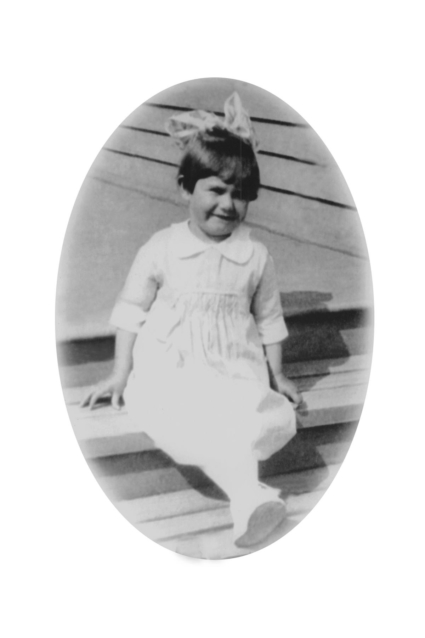
On June 26, 1917, little Sophia was placed on a train at Grand Central Terminal with 75 other children. The Foundling Hospital’s transports were called “baby trains,” and most of the children were aged one to six. Sophia’s name and birth date were embroidered in the hem of her dress, and the number 29 was printed on a pink ribbon pinned to her clothing. She was sent to Minnesota by the Foundling Hospital in response to an application: Midwest families could preorder an orphan, specifying age, gender and special features. The application for Sophia (whose name was sometimes spelled Sophie by the Foundling Hospital) read: “Please send us a girl, around the age of three with brown hair and brown eyes. My husband and I have sons with the same coloring, and we want a girl to match.”
When she arrived in St. Paul four days later, June 30, a Polish family waited at the train station holding the number 29 to match Sophia’s tag number. She arrived with indenture papers putting her in the care of the family, who promised to treat her as their own, to clothe, educate and provide for her financially until the age of eighteen, in exchange for work. With any luck, the foster parents would legally adopt an orphan train child, though often this didn’t happen; an orphan train child might take on the foster family name without ever being adopted or considered a legal heir.
The baby trains taking children from the Foundling Hospital delivered them to specific families. Other orphan trains, organized by the city’s Children’s Aid Society, would stop at a city or town and present the children on a train station platform or town hall stage, where spectators could come and choose a child. If the child agreed, they immediately went off with a new family. If no one requested a child, they got back on the train and tried for placement again at the next train stop. Children who went unclaimed would eventually be sent back to New York and later board another train, for another trip west. The orphan trains ran for 75 years until the United States passed federal laws requiring better social conditions and child welfare across the country.
When Sophia turned four, her foster mother died in the 1918 influenza epidemic. Her foster father, who had three biological children to raise, did not want to keep her, and she was destined to be sent to a St. Paul orphanage and eventually returned to New York. But a priest visiting the St. Paul orphanage decided to take Sophia back with him to the small southern Minnesota town where he lived. The Foundling Hospital in New York was notified, and Sophia was issued a new set of indenture papers.
Though saved from a return to New York, four-year-old Sophia was placed in a very cruel home in the priest’s town. Her new foster parent was an elderly woman who could only speak German. Other town residents provided Sophia with the necessities of life and treated her with a kindness that she didn’t have at home; in her case, it took a village to raise a child.
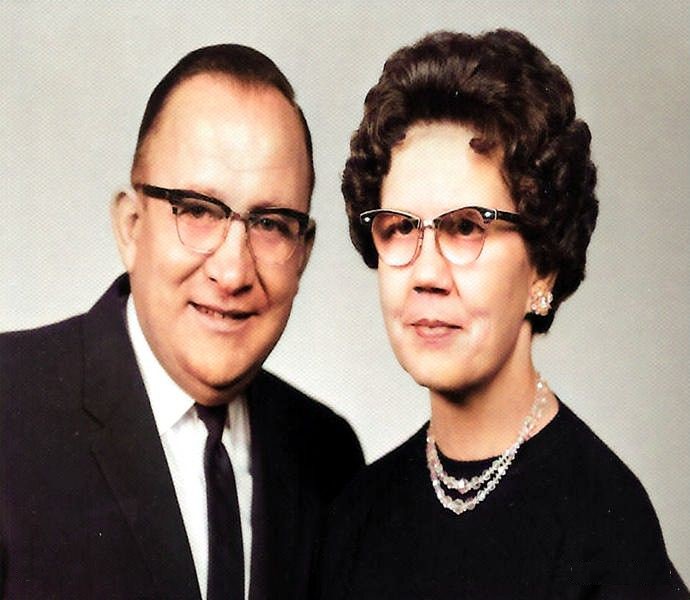
When Sophia was 21, she met and married her knight in shining armor, my dad, Charles Hillesheim. As a teenager, my mother was denied any entertainment, especially dancing. But one day she snuck out to a dance and met her future husband. I’m the youngest of their five children, and there are 13 grandchildren, 32 great-grandchildren, and 18 great-great grandchildren.
When I was still an adolescent, I remember my mother packing a suitcase for a trip to New York. My siblings and I were confused, because our mother never left home for more than a day at a time. While she was gone, our father told us her origin story: that she was born in New York City, and her mother was too poor to care for her so she gave her to an orphanage. He told us about the baby train, and I remember feeling shocked, as though I didn’t know my mother at all. We had never asked our mother about her family, maybe because our father was one of 12 children, and we had 60 first cousins – already a lot of family to keep track of, so we just didn’t think that there might be more.
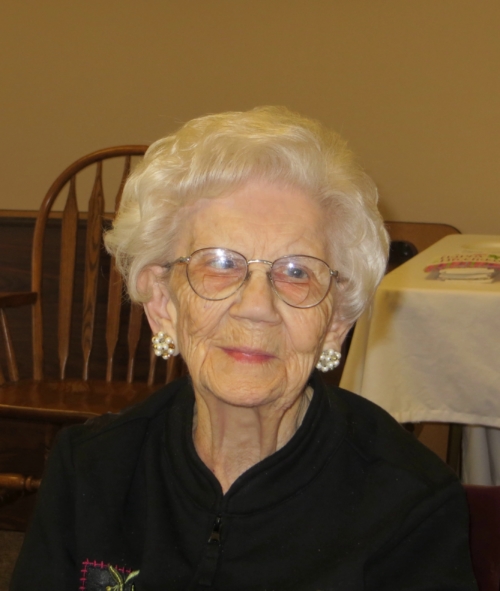
Sophia died May 22, 2016 at the age of 101. When she died, she was the last orphan train rider in the state of Minnesota. Beatrice Fojtik, the last person relocated anywhere by the orphan trains died in Texas in 2021 at the age of 100, ending a significant era in American history.
Sophia had no family tree and spent her whole life longing to know about her biological family. When she made that trip to New York in 1966, she visited the orphanage to search for her roots, but she learned little. She did come back to Minnesota with a handful of pages listing the surname Kaminsky, which she had ripped out of a telephone book. My older siblings wrote to every person on those pages, but no one had heard of a William, Maria, or Sophia in their families. My siblings learned that the Kaminsky name is Jewish, Russian and also German. Kaminski spelled with an “i” at the end was Polish.
With the advent of DNA tests, I purchased kits from all the family genealogy sites and tested my mother when she was 90. A few years ago, and sadly after my mother’s passing, we received a match: a first cousin who had roots in New York. My daughter, a DNA genealogist, helped us interpret the DNA results.
I’m a researcher by nature and now an author and orphan train historian. Sophia’s full story is told in my second book, Last Train Home: An Orphan Train Story. I’ve worked with friends and with descendants of other orphan train riders, one time helping connect my mother with a woman named Mary Griffin, whose mother rode on the same train with mine from New York to Minnesota. Clark Kidder, grandson of a rider and producer of West By Orphan Train, a documentary, helped me find Sophia’s father. His last name was not Kaminsky after all; our research showed a match with the surname Krafft/Kraft. The Kraft family came from Germany to New York City, and one Kraft son, who is believed to be Sophia’s biological father, married three times. None of his wives’ descendants matched Sophia in DNA, so we believe he was involved with another woman, Sophia’s unknown mother. In contact with several Kraft families, we’ve received pictures of Mr. Kraft’s other children – four half siblings of Sophia’s, whom she would have been thrilled to know about. One of them looks just like her, and I am hoping to find that sibling’s death or birth certificate one day to learn more; she, like Sophia, was born in 1915. Though we haven’t yet located Sophia’s mother, DNA information makes us certain she was of Eastern European heritage.
I can only hope that one day New York will open more orphanage and vital records to those of us who have difficult searches. I can request a New York birth certificate of a deceased parent when that parent is listed on my birth certificate, but Sophia’s biological birth name isn’t there because she was given a fictitious name as an infant. For that reason, I can’t request a birth record search. When you are not even sure the name you have is even yours, it’s like one side of your family fell off the face of this earth. I can only hope that someday, someone on my grandmother’s side of the family will take a genealogy DNA test and solve our mystery.
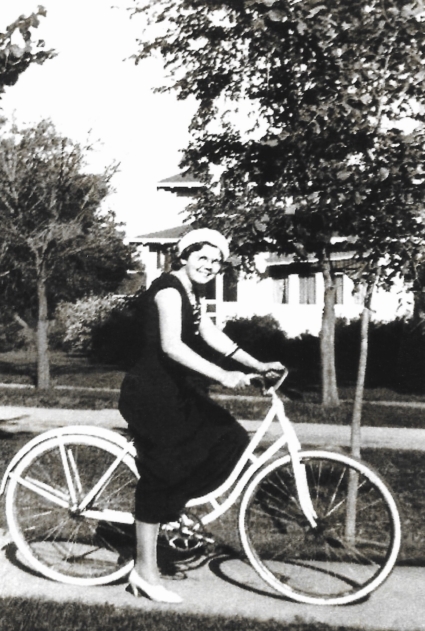 Renee Wendinger is an orphan train historian, author, speaker, and descendant of an orphan train rider. Find more at https://theorphantrain.com
Renee Wendinger is an orphan train historian, author, speaker, and descendant of an orphan train rider. Find more at https://theorphantrain.com








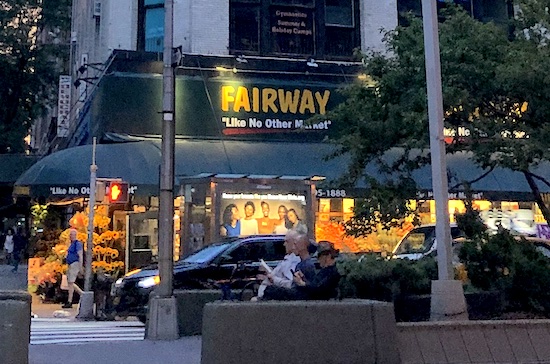
My grandmother Sophia 💕
Thank you for this excellent and informative article. Good luck finding additional information about your grandmother’s family. I’m sorry your mother missed hearing what you’ve found to date, and will continue to find. I can only imagined the large void one would having no knowledge of your biological family.
Wow, what an incredible story. Thanks for sharing it with us!
To me there is one travesty in this situation, the denial of identifying information to families of orphans. When you consider it has been well over 150 years since “Orphan Trains” were in existence, the transporting of the young to destinations across the United States and we are no closer to obtaining family history. This is barbaric and it is about time laws change so families can learn more about their family history. Most of these orphans went to their graves not knowing anything about themselves let alone who they left behind. My mom, Marie Roberts was one of those orphans who rode the train with the lovely Sophie who this article is about. My mom’s story was quite different from that of Sophie, yet they were survivors who went on to lead beautiful lives and never let the unknown get in their way. Laws must change!!!!
Someone: get i touch with Louis Gates. Get this lady on his show. She is fascinating!
I think that’s the best article I ever read in the WSR.
This story has touched me so deeply. Thank you for sharing. I had no idea!!!!
this is fascinating. while my parents were both born in NYC to families living here, I know nothing about my father’s family. his parents died before he married my mother, and he always said he married into my mother’s family. Strangely ( to me today ) I never asked anything about his family, So I know nothing aside from a few pictures and my grandparents death announcements. I did join 23 and me to see if I could find some relatives… but I ended up only finding my mother’s side. good luck on your search, this is fascinating.
You as a girl can’t find your dads dna you would need a brother I believe
I believe that would apply in a search for Y DNA only. On Ancestry they are now sorting matches by paternal or maternal side, for example, although some remain “unknown”.
Not true, you can find both sides on 23andme.com with out a male relative. You are 50% each parent.
Thank you for sharing your amazing research and this beautiful story. I’m glad your Mom lived to have so many close family members. I’m glad the stories of the trains is not lost.
Thank you for this wonderful – and so desperately sad – story. When I first heard of the Orphan Trains several years ago I couldn’t believe that these children were shipped away like this, like chattel. But it did happen. Some – like Sophia'[ — had happy endings. Many, I suspect, dd not. Which brings me to the awful treatment of the refugees at our border…. and the children separated from their parents by Trump’s regime….
Please stay on the subject. Don’t make this a political post. This was an era where life was much different and beginning for all. All though it’s a sad one.
Barack Obama did the first separating of illegal immigrants from their children or anchor babies. Not immigrants legally coming here but illegals.
How moving! Thank you, Renee, for sharing your Mother’s story. My Mother lived uptown, across from the Jewish orphanage where Art Buchwald spent much of his childhood. His Mother was in a mental institution. Children led hard lives back then, too.
what an amazing story! Thank you!
The Orphan Train article was fascinating and I’m looking forward to reading Renee Wendinger’s books. It’s a heartbreaking chapter in our nation’s history.
What a beautifully written and moving story! Halfway through, I thought, “This is a movie quality story, I hope she will write a book.”, only to find that the Author had such a book, which I will be reading!
My father and maternal Grandmother were both adopted and, although we have much contact with my father ‘s bio family, very little with my maternal side. It’s amazing how many families have adoption stories, each one fascinating in it’s own way.
A brilliant article. Thanks to the writer and WSR.
OMG! Is a such a beautiful story,even the sad part of it,however,she finally was and end as a very happy women who destiny set her to born and grow with no real family ☹ but later she lived for many years around a big big family ,with so much love for her!!Thank you, for sharing this amazing family story!!
Thank you, Renee, for your work. A truly wonderful and uplifting story. And thank you WSR for bringing it to us.
A tragic but stirring story.
Hi Renee! I just happen upon your article while scrolling. I know we’ve talked about this before. Such great writing! I’m glad to see that more has developed with your and your mother’s story. Hopefully your maternal relatives will emerge
What a fascinating story. I had no idea these train rides ever happened. It’s heartbreaking to hear how challenging the laws are in New York considering the harm people needing answers have suffered.
Renee. I love that you found a cousin and i really hope you will continue on this difficult but sometimes rewarding journey. great article. great history keep up the search
This story touched my heart. I gave up a child for adoption but have since been reunited after 40 years. I must read the book. Had never heard of the adoption trains.
Wow, I had never heard anything about this. Thank you and in some ways explains why things are the way they are. I could not imagine leaving my baby or child and never returning. How terrible for the parents and the child never knowing who their true heritage was/is.
So informative and thank you once again.
I recently visited the National Orphan Train Complex in Concordia, Kansas. Visit their website at orphantraindepot.org for more Information on the program.
My husband’s grandfather also came to mn on orphan train when he was two. His birth certificate says he was antonio weedman or weidmann born to theresa Wagner and antiono weedmann and was second child. He was born august 6, 1911 in new york city and came to foley area august 1913.. i tried to find more but gave up runn into dead ends. Any help would be appreciated in finding relatives.
Have you tried familysearch.org? It is a free website, operated by the LDS church. Sone info is free at Ancestry as well.
I thoroughly enjoyed your article. It was clearly written by someone who loves this subject. I’m very sorry your mother endured her life living with the older cranky woman, but thankful the community help her out until she met your dad. I have a soon to be 10 year old grandson who reads everything. I will be purchasing “Charlie’s Chalk Stick” for his birthday coming up this month. I’m really excited because I get to read it first!
Your story is moving. I wasn’t aware of this part of our history. I look forward to learning more. Hope you find more family.
Thank you Renee for sharing your mother’s story. I am happy to learn that she lived a long life after finding love and happiness with your dad.
Thankyou for a remarkable story ! I had no idea that this situation existed, and how long it lasted.
Columbia University has at least two archival collections relevant to this subject:
Society for the Relief of Half-Orphan and Destitute Children Records, 1836-1923, bulk 1853-1922
Series I: Register, 1836-1856
Series II: Agreement Books, 1872-1932
Series III: Executive Board Minutes, 1853-1922
Series IV: Applications Book, 1887-1920
Series V: Dismissal Book, 1847-1857
Series VI: Correspondence & Printed Materials, 1880-1923
https://findingaids.library.columbia.edu/ead/nnc-rb/ldpd_4079808
New York Juvenile Asylum records (Children’s Village), 1853-1954
Series I: Administrative Records, 1853-1954
Series II: General Operation Records, 1853- 1950
Series III: Daily Logs, 1858-1953
Series IV: Children’s Village, 1921-1936
https://findingaids.library.columbia.edu/ead/nnc-rb/ldpd_6909466
The American Jewish Historical Society has the following:
Hebrew Orphan Asylum of the City of New York Records
https://archives.cjh.org//repositories/3/resources/18297
Series I: HOA Administrative Records, undated, 1855-1978, 1985, 2004-2007
Subseries A: HOA Annual Reports, President’s Reports, the Constitutions and By-laws of the Hebrew Benevolent Society and HOA, undated, 1858-1895, 1901-1932, 1940
Subseries B: Meeting Minutes of Board of Trustees, Executive Committee, Board of Directors, undated, 1860, 1867-1877, 1895-1940
Subseries C: Various HOA Committees’ Meeting Minutes and Departmental Reports, undated, 1871-1884, 1895-1907, 1913, 1919-1941
Subseries D: Children’s Records, undated, 1860-1942, 1964, 1970-1974, 1977-1978, 1985, 2004-2007
Subsubseries i: Children’s Applications, Admission and Discharge, and Public School Records, undated, 1860-1942
Subsubseries ii: Medical Records, 1916-1925, 1933, 1935-1941
Subsubseries iii: Children’s Conduct Records, 1872-1875, 1877-1884, 1891-1899
Subsubseries iv: Student Publications, undated, 1913, 1925-1933, 1941, 1963-2012
Subseries E: HOA Financial Records, 1855-1933
Subseries F: HOA Property Records, undated, 1876, 1880-1896, 1898, 1902-1904, 1906, 1910-1926, 1941-1944, 1958, 1965
Subseries G: Donation/Bequest Records, 1870-1972
Subseries H: HOA Publications and Programs, undated, 1883, 1904-1938, 1940-1941
Subseries I: State/City Government Records (in relation to HOA), undated, 1878, 1916, 1919-1934
Series II: HOA Affiliated Associations, undated, 1871-1899, 1900-2013
Subseries A: Federation for the Support of Jewish Philanthropies and Related Organizations, undated, 1871, 1911-1916, 1920, 1922, 1924-1925, 1937, 1939-1940, 1943
Subseries B: Ladies’ Sewing Society, undated, 1876-1882, 1893-1928, 1932-1940
Subseries C: Emmanuel Lehman Fund, 1887-1922
Subseries D: Seligman Solomon Society, 1886-1956
Subseries E: Academy Alumni Association, undated, 1939-1952, 1954
Subseries F: H.O.A. Association, 1957-1999, 2000-2012
Subseries G: Pop Sprung Camp Fund, 1982-1996
Series III: Correspondence, undated, 1884-1900, 1904-1929
Series IV: Dedications/Speeches, undated, 1910, 1915, 1917, 1922, 1927-1928
Series V: HOA Histories and Studies, undated, 1832-1960, 1966
Series VI: Newspaper and Magazine Clippings, undated, 1884-1890, 1904, 1981-1986, 1993
Series VII: Photographs, undated, 1890, 1900-1999, 2000-2013
Series VIII: Audio and Visual Material
Subseries A: Oral Histories, undated, 1986-1989
Subseries B: Videos—VHS and DVDs, undated 2004-2013
Separated Oversized Materials, 1870-1919, 1922, 1924, 1926-1927, 1949
Renee, This is wonderful. Your mom would be so pleased. I am the daughter of Frances Wodarck who was an Orphan Train Rider From New York.